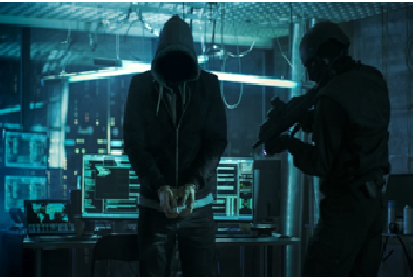General Investigator is the police officer that handles criminal cases in a wide variety of police operational units. This investigator handles increasingly more technological related issues regarding the cases that he is required to solve and needs good cybercrime and digital forensics awareness Skills.
Objective
Investigating Officeris the police officer that handles criminal cases in a wide variety of police operational units. This investigating officer handles increasingly more technology related issues regarding the cases and therefore need to understand technology fundamentals and investigation of crimes using various technologies.
The basic level course for Investigation track shall help the Law Enforcement Agencies gain an understanding of following subjects:
- Different types of cyber-crimes and its evolution over the years.
- Modus operandi and usage of technologies to execute cyber-crimes.
- Identify the Do’s and Don’ts of cyber-crime investigation.
- What is digital evidence and analysis of digital Evidence.
- Legislation and policies related to cyber-crimes and digital evidence .
- How to preserve the integrity of digital evidence, admissibility of digital evidence in court of law and maintaining the chain of custody.
- Basics of the Internet, Surface, Deep and Darknet and Crypto Currency
- Standard Operating Procedures (SOP) for investigation of MobileApplication related financial frauds.
- Standard Operating Procedures (SOP)for handling complaints from Cyber Crime Portal.
- Standard Operating Procedures (SOP)for investigation of Email-based crimes.
- Call-based crimes, investigation of day-to-day crimes using Call Data Record, Examination of Call Detail Record (CDR).
- Analysis of IPDR & ILD CDR for crime investigation .
- CCTV evidence collection – handling complaints, Seizure toolkit, documenting details, pre-evidence collection, do’s and don’ts, and the process to retrieve videos.
- Open-Source Intelligence (OSINT) and how to gather relevant information using social media analytics with the help of various open-source tools.

Objective
Investigating officers are responsible for investigating cybercrimes such as email frauds, scammers, social media related offences, offences involving audio/video footages etc. Officers in these cases are required to have sound knowledge related to the technology used by offenders to commit crimes.
The objective of this course is for Investigating Officers to gain an intermediate level knowledge of the following topics:-
- Investigation of Social Media Crimes like Cyber Stalking, Bullying, Fake Content etc and also understand Social Media Evidence Gathering.
- Investigation of Social Media Related Crimes for various Social Media Platforms like Facebook, Twitter etc.
- Investigation of YouTube Related Crimes including Platform Specifics and Legal Notice Preparation.
- Investigation of Fin-Tech Cases like ATM frauds, OTP frauds, OLX frauds etc.
- Tracking, Tracing and Trapping of Suspect or Criminals using Cyber Patrolling Methods and using GPS, Cell ID and other relevant Technologies.
- Understand Linux and Python as an Investigation Tools.
- Understanding and Interpretation of IT Act, IPC, CrPC and Indian Evidence Act and Role of various Cyber Agencies.
The prerequisite for this course is Investigation Track – Basic Level Course.

Objective
Investigating officers are responsible for investigating cybercrime while also correlating other crimes with cyber evidence.Officers in these cases are required to have sound knowledge related to the technology used by offenders to commit crimes and procedures to investigate such crimes.
Objectives of this course is for these personnel to gain knowledge of following topics:-
- Advanced internet crime investigation including investigation of domain or IP driven crimes, investigation of live and deleted / deactivated websites, content removal procedures, evidence acquisition from webpages, legal noticesand tools for website investigation.
- Advanced email crime investigation including investigation procedures, data retrieval, header analysis, legal notices and tools.
- Advanced social media crime investigation including gathering evidence, sentiment analysis, legal notices and tools for social media investigations.
- Advanced network-based crimes investigations including introduction to network protocols, sources of evidence, data interception, packet level analysis, legal notices and tools for network investigations.
- Offensive investigation methods including understanding CVEs, VAPT, web application security including SQL injection, XSS and using pre-built tools for investigation and cautions while undertaking such investigations.
- Anti-forensic crime investigation including criminal MO, understanding cryptography, hashing, steganography, digital signatures and certificates, handling anti-forensics media and tools.
- Use of triage forensic artifacts for investigation including brushing of system files, identification of logs and log analysis for various types.
- Cyber-terrorism and dark web including recruitment, spread of propaganda on Internet, understanding botnets, honeypots, crypto currency investigation toolkit, search engine and other tools for dark-web investigation.
The prerequisite for this course is Digital Forensics Track – Intermediate Level Course.
